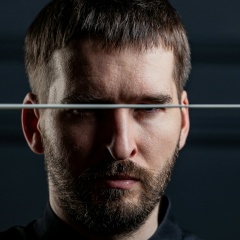Людмила Петрановская:
"... При всем разнообразии этих ситуаций в них есть важная общая черта: в каждой из них родитель как бы не является взрослым. Он не справляется с жизнью (истощение и тревога), он не является хозяином самого себя (автоматизмы и вина). Он вынужден выполнять роль родителя, взрослого, ответственного, сильного, тогда как его внутреннее состояние противоречит этой роли, у него нет ресурса для ее выполнения.
В последние десятилетия сформировалось странное представление о том, что детей растить дико тяжело. При том, что в семье обычно один-два ребенка, есть детские сады, няни и машинки-автоматы – это очень, порой невыносимо тяжело. Такое неадекватное восприятие может говорить об одном – сама роль родителя дается тяжело.
Либо это роль беспомощного, страдающего, изнемогающего родителя, который “жизнь кладет” – то есть страдать ему полагается по сценарию, иначе “какаяжетымать” и все не в счет. Подобное представление встречается все реже, лидируют по этой части все же мамы нынешних молодых родителей (об этом говорилось в «Травме поколений»). Порой не наблюдается никакой реальной связи с тяжелым материальным или бытовым положением: кому-то легко – в общем и целом легко, поскольку многое, конечно, непросто, особенно если с четырьмя детьми в тесной квартирке и с маленькими доходом, – а кто-то падает с ног от бремени родительства – не притворяется, а реально устает и доходит до нервного истощения, даже пребывая на курорте в отеле “все включено”, да еще с няней.
Причиной подобной усталости может быть то, что роль родителя создается “в голове”: не усваивается естественным образом в раннем детстве, а выстраивается в уже сознательном возрасте на основе критической оценки поведения собственных родителей, чтения книг, фантазий, мечтаний, убеждений, решений и т. п. Такая роль может быть прекрасна по замыслу и содержанию, но она отличается от роли живой, природной так же, как нежное комнатное растение – от живучего придорожного куста: чуть что не так, сразу не хватает ресурса. И вот образ роли уже „не справляется“, блекнет, отступает, а оставленные позиции гордо занимает чертополох усвоенных в собственном детстве “Сейчас получишь!”, “Ты что, совсем идиот?!”, “Зла на тебя не хватает”, “Ты меня в могилу загонишь” и пр.
Вообще несформированность нормальной родительской роли, позиции, состояния – ее еще называют позицией властной заботы, а Ольга Писарик, опираясь на психологию привязанности, называет ее “заботливая альфа” – бросается в глаза всякому, кто наблюдает за обычными родителями на улице или где-нибудь еще. „Проседают“ либо составляющая “забота”, когда общение с ребенком небезопасно для него, не является оберегающим, помогающим, решающим проблемы, – либо составляющая “власть”, когда ответственность за происходящее передается ребенку, а взрослый демонстрирует беспомощность, либо обе сразу, что особенно неблагоприятно. ..."
полностью по ссылке: http://alpha-parenting.ru/2013/08/21/pochemu-roditeli-vedut-sebya-agressivno/
"... При всем разнообразии этих ситуаций в них есть важная общая черта: в каждой из них родитель как бы не является взрослым. Он не справляется с жизнью (истощение и тревога), он не является хозяином самого себя (автоматизмы и вина). Он вынужден выполнять роль родителя, взрослого, ответственного, сильного, тогда как его внутреннее состояние противоречит этой роли, у него нет ресурса для ее выполнения.
В последние десятилетия сформировалось странное представление о том, что детей растить дико тяжело. При том, что в семье обычно один-два ребенка, есть детские сады, няни и машинки-автоматы – это очень, порой невыносимо тяжело. Такое неадекватное восприятие может говорить об одном – сама роль родителя дается тяжело.
Либо это роль беспомощного, страдающего, изнемогающего родителя, который “жизнь кладет” – то есть страдать ему полагается по сценарию, иначе “какаяжетымать” и все не в счет. Подобное представление встречается все реже, лидируют по этой части все же мамы нынешних молодых родителей (об этом говорилось в «Травме поколений»). Порой не наблюдается никакой реальной связи с тяжелым материальным или бытовым положением: кому-то легко – в общем и целом легко, поскольку многое, конечно, непросто, особенно если с четырьмя детьми в тесной квартирке и с маленькими доходом, – а кто-то падает с ног от бремени родительства – не притворяется, а реально устает и доходит до нервного истощения, даже пребывая на курорте в отеле “все включено”, да еще с няней.
Причиной подобной усталости может быть то, что роль родителя создается “в голове”: не усваивается естественным образом в раннем детстве, а выстраивается в уже сознательном возрасте на основе критической оценки поведения собственных родителей, чтения книг, фантазий, мечтаний, убеждений, решений и т. п. Такая роль может быть прекрасна по замыслу и содержанию, но она отличается от роли живой, природной так же, как нежное комнатное растение – от живучего придорожного куста: чуть что не так, сразу не хватает ресурса. И вот образ роли уже „не справляется“, блекнет, отступает, а оставленные позиции гордо занимает чертополох усвоенных в собственном детстве “Сейчас получишь!”, “Ты что, совсем идиот?!”, “Зла на тебя не хватает”, “Ты меня в могилу загонишь” и пр.
Вообще несформированность нормальной родительской роли, позиции, состояния – ее еще называют позицией властной заботы, а Ольга Писарик, опираясь на психологию привязанности, называет ее “заботливая альфа” – бросается в глаза всякому, кто наблюдает за обычными родителями на улице или где-нибудь еще. „Проседают“ либо составляющая “забота”, когда общение с ребенком небезопасно для него, не является оберегающим, помогающим, решающим проблемы, – либо составляющая “власть”, когда ответственность за происходящее передается ребенку, а взрослый демонстрирует беспомощность, либо обе сразу, что особенно неблагоприятно. ..."
полностью по ссылке: http://alpha-parenting.ru/2013/08/21/pochemu-roditeli-vedut-sebya-agressivno/
Lyudmila Petranovskaya:
"... With all the variety of these situations, they have an important common feature: in each of them the parent is not, as it were, an adult. He cannot cope with life (exhaustion and anxiety), he is not the master of himself (automatism and guilt). He is forced to play the role of a parent, an adult, responsible, strong, while his inner state contradicts this role, he does not have the resource to fulfill it.
In recent decades, there has been a strange notion that raising children is wildly difficult. Despite the fact that there are usually one or two children in a family, there are kindergartens, nannies and automatic machines - this is very, sometimes unbearably difficult. Such inadequate perception can indicate one thing - the very role of a parent is given hard.
Either it is the role of a helpless, suffering, exhausted parent who “lays down life” - that is, he is supposed to suffer according to the scenario, otherwise “to get rid of it” and everything does not count. Such an idea is less and less common; the mothers of today's young parents are still in the lead in this respect (this was discussed in The Trauma of Generations). Sometimes there is no real connection with a difficult material or everyday situation: it is easy for someone - in general, it is easy, since a lot, of course, is not easy, especially if with four children in a cramped apartment and with a small income, and someone falls down from the burden of parenting - not pretending, but really getting tired and reaching the point of nervous exhaustion, even while staying at a resort in an all-inclusive hotel, and even with a nanny.
The reason for such fatigue may be that the role of a parent is created “in the head”: it is not absorbed naturally in early childhood, but is built at an already conscious age based on a critical assessment of the behavior of one's own parents, reading books, fantasies, dreams, beliefs, decisions, etc. Such a role may be beautiful in concept and content, but it differs from the role of a living, natural one in the same way as a delicate houseplant from a tenacious roadside bush: almost something goes wrong, there is not enough resource right away. And now the image of the role “cannot cope”, fades, retreats, and the left positions are proudly taken by the thistle learned in their own childhood “Now you will get it!”, “What are you, absolutely idiot ?!”, “There is not enough evil for you”, “You you will drive me into the grave, ”etc.
In general, the lack of formation of a normal parental role, position, state - it is also called the position of imperious care, and Olga Pisarik, relying on the psychology of attachment, calls it “caring alpha” - is striking to anyone who observes ordinary parents on the street or anywhere else ... Either the component of “care” is “sagging” when communication with the child is unsafe for him, is not protective, helping, solving problems, or the component of “power”, when the responsibility for what is happening is transferred to the child, and the adult demonstrates helplessness, or both at once, which especially unfavorable. ... "
completely at the link: http://alpha-parenting.ru/2013/08/21/pochemu-roditeli-vedut-sebya-agressivno/
"... With all the variety of these situations, they have an important common feature: in each of them the parent is not, as it were, an adult. He cannot cope with life (exhaustion and anxiety), he is not the master of himself (automatism and guilt). He is forced to play the role of a parent, an adult, responsible, strong, while his inner state contradicts this role, he does not have the resource to fulfill it.
In recent decades, there has been a strange notion that raising children is wildly difficult. Despite the fact that there are usually one or two children in a family, there are kindergartens, nannies and automatic machines - this is very, sometimes unbearably difficult. Such inadequate perception can indicate one thing - the very role of a parent is given hard.
Either it is the role of a helpless, suffering, exhausted parent who “lays down life” - that is, he is supposed to suffer according to the scenario, otherwise “to get rid of it” and everything does not count. Such an idea is less and less common; the mothers of today's young parents are still in the lead in this respect (this was discussed in The Trauma of Generations). Sometimes there is no real connection with a difficult material or everyday situation: it is easy for someone - in general, it is easy, since a lot, of course, is not easy, especially if with four children in a cramped apartment and with a small income, and someone falls down from the burden of parenting - not pretending, but really getting tired and reaching the point of nervous exhaustion, even while staying at a resort in an all-inclusive hotel, and even with a nanny.
The reason for such fatigue may be that the role of a parent is created “in the head”: it is not absorbed naturally in early childhood, but is built at an already conscious age based on a critical assessment of the behavior of one's own parents, reading books, fantasies, dreams, beliefs, decisions, etc. Such a role may be beautiful in concept and content, but it differs from the role of a living, natural one in the same way as a delicate houseplant from a tenacious roadside bush: almost something goes wrong, there is not enough resource right away. And now the image of the role “cannot cope”, fades, retreats, and the left positions are proudly taken by the thistle learned in their own childhood “Now you will get it!”, “What are you, absolutely idiot ?!”, “There is not enough evil for you”, “You you will drive me into the grave, ”etc.
In general, the lack of formation of a normal parental role, position, state - it is also called the position of imperious care, and Olga Pisarik, relying on the psychology of attachment, calls it “caring alpha” - is striking to anyone who observes ordinary parents on the street or anywhere else ... Either the component of “care” is “sagging” when communication with the child is unsafe for him, is not protective, helping, solving problems, or the component of “power”, when the responsibility for what is happening is transferred to the child, and the adult demonstrates helplessness, or both at once, which especially unfavorable. ... "
completely at the link: http://alpha-parenting.ru/2013/08/21/pochemu-roditeli-vedut-sebya-agressivno/
У записи 19 лайков,
10 репостов.
10 репостов.
Эту запись оставил(а) на своей стене Lazy Cat




































